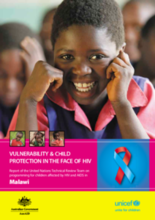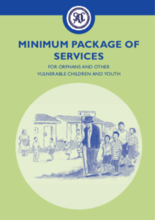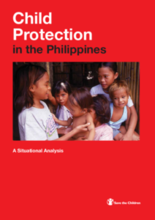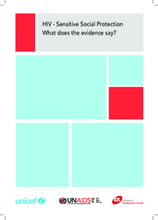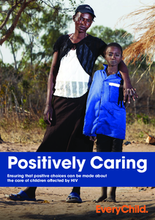Displaying 191 - 200 of 412
In this article, the microsimulator SOCSIM is used to estimate and project quantities such as the number of living uncles, aunts, siblings, and grandparents available to orphans in Zimbabwe.
This report reviews Malawi’s national response for children affected by HIV and AIDS. The report notes significant progress made in improving the lives of children affected by HIV and AIDS and offers key recommendations for further improvements to national policies and strategies.
This Prakas is intended to define roles and responsibilities of relevant competent agencies and establish procedures, operational guides, and forms to implement the Policy on Alternative Care for Children.
This study commissioned by the Ministry of Gender, Children, and Community Development and financially and technically supported by UNICEF and the Better Care Network, describes the situation of children in institutional care in Malawi.
This Source Book is a practical guide for service providers working with children in Malawim specifically in psychosocial support services to orphans and other vulnerable children
The Minimum Package is a guide to encourage the harmonizing of service delivery for Orphans and Other Vulnerable Children and Youth (OVCY) across the Southern African Development Community (SADC) region.
This situational analysis was commissioned by the Child Protection Initiative as a preliminary exercise to develop evidence-based recommendations to guide Save the Children in the Philippines to develop interventions. Priority areas are children in residential care, children in armed conflict and disasters, children in situations of migration (including for trafficking purposes), and children in exploitative and hazardous work conditions.
Shows how HIV-sensitive social protection can reduce vulnerability to HIV infection, improve and extend the lives of people living with HIV, and support individuals and households. While not specific to children, the paper includes sections on HIV and Child Protection and HIV and Early Childhood Development.
Shares recent findings on progress made and steps needed to achieve an AIDS-free generation through universal access to HIV prevention, treatment, and social protection
This report examines the impacts of HIV on the care choices of children, exploring how HIV affects whether or not children can remain within parental care, and on the alternative care options open to them.

